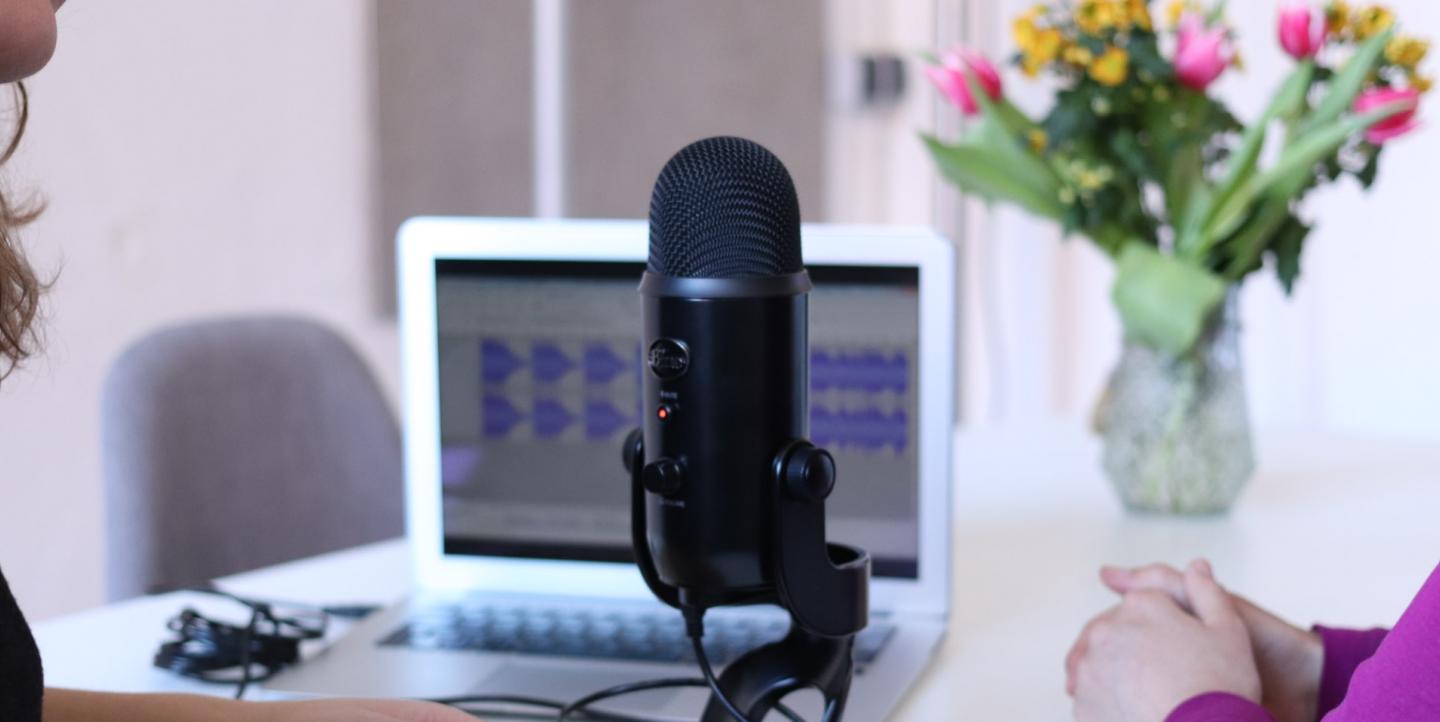Almost one in three women (30%) worldwide experience either physical or sexual intimate partner violence, or non-partner sexual violence in their lifetimes, according to the World Health Organization.
Though difficult, it’s important for the media to report on this violence. When doing so, journalists must identify people who are ready to discuss their experiences, and be equipped with the appropriate vocabulary and sensitivities for engaging in the conversations. Journalists should also pay attention to their own mental health as they carry out this reporting.
For tips on covering the topic, I spoke with psychologist, human rights activist, coach and founder of the Center for Women’s Perspectives, Martha Chumalo. Chumalo has worked with women survivors of violence and abuse for over 20 years. In December 2020, she received the annual Human Rights Tulip award from the Netherlands.
Prepare for the interview
Remember that a conversation with the media can be both beneficial and harmful for interviewees. “Potentially, any conversation can be either therapeutic or traumatizing; it all depends on its content,” said Chumalo. “A conversation about trauma is like reopening wounds.” Journalists, therefore, must be sensitive to their interview subject’s feelings.
She added that productive conversations should be held in a location the interviewee feels is safe. It’s critical for your interview subject to feel comfortable before they share their trauma with you. You should discuss this beforehand, asking your interviewee questions about their wellbeing like:
- “Are you up for this conversation?”
- “Did you sleep well?”
- “Do you feel safe?”
Allow the interviewee to choose the time and location
When arranging the interview, it is important to enable your interview subject to make as many decisions as possible.
“Many [survivors], especially those who suffered abuse and violence for long periods of time, had no authority over their own lives. This is why they often easily fall into the pattern of subordination, especially if they haven’t yet tackled their traumatic experience,” said Chumalo. “It’s important not to make the decisions for them, while encouraging them to reacquire this skill.”
[Read more: Tips for reporting on human rights violations and abuses during COVID-19]
Respect your subject’s right to refuse an interview
When conducting trainings for journalists, Chumalo explained how she has them partner up with someone they feel safe and comfortable. She then prompts the journalists to recall a positive sexual experience they might have had, and share it with their partner for the exercise.
“You should see the indignation and reluctance this task causes. I ask the journalists to remember this moment — the reaction of their own body,” said Chumalo. “Because when they come to an interview, the interviewee has to share a no less personal experience that wasn’t at all positive, but instead very unpleasant and painful.”
Your top priority must be sensitivity to your interview subject’s feelings. “It’s all very personal,” Chumalo said. “You should always expect that the person won’t be ready to talk. This decision should be respected. In such cases, thank them and tell them that you sympathize. Request forgiveness if your actions brought them additional suffering.”
Don’t check your voice recorder or phone too much
For survivors of abuse and violence, their experience has taught them to scan for non-verbal signals. They might expect other people to treat them unfairly. “Even when you look at your voice recorder instead of them, they’ll see it as you not paying them sufficient attention,” said Chumalo.
To avoid any misinterpretation, Chumalo suggests being upfront and honest. “For example, in the beginning of your conversation, explain that while it may seem inappropriate, you have to look at your voice recorder from time to time to check whether it’s still working, whether the battery hasn’t died.”
[Read more: Tips for reporting on sexual assault and abuse]
Respond tactfully to the questions addressed to you
Prepare to respond with empathy and compassion to questions your interview subject may ask you. If your subject asks you, for instance, what you would do if you were in their position, you could say something like, “I don’t know how I would behave, but I respect and admire what you did.”
Express concern if your interview subject becomes visibly upset
Your interview subject may become visibly upset during your conversation. If the interviewee begins to cry, for instance, show your concern and offer them a glass of water or tissue. “Don’t try to calm them,” said Chumalo. “By letting them cry, you give the person a sense of acceptance, even when they are in a vulnerable state.”
Focus on the perpetrator’s actions
Focusing on the abuser’s actions helps shift the attention away from the survivor, said Chumalo. Do not attempt to assess whether your interview subject walked fast enough, if they fought back correctly or whether they called for help, for example.
“Violence is done by abusers, but in the media, we often only see the survivors’ stories,” said Chumalo. Although journalists rarely have access to the perpetrators for interviews, they can report information about the abuser using the words of survivors, eyewitnesses or other people who know the assailant. “This is key in covering violence. We have to show those who perpetrate such actions.”
Violence doesn’t happen in a vacuum, said Chumalo. It happens within the community. If violence took place in a municipal park, that means that there are places in the city where these things can happen. This poses important questions for city authorities about how to make certain locations safer.
Responsibility for the violence always rests with the perpetrator and with the state that failed to implement sufficient safeguards.
Watch your language
Journalists must choose their words carefully. For instance, use the word “survivor” instead of “victim” when describing someone who has survived a traumatic incident.
“We use the word ‘victim’ when a person has died,” said Chumalo. “There are victims of terror, of genocide, of famine. It’s important to say 'survivors of violence.'"
Engage your interviewee on their expertise
During the conversation, respect your interview subject’s experience and insight. Ask them what the government or the city council can do to prevent similar incidents in the future, for example. Or ask what they think can be done to make the environment safer.
Mariana Verbovska is a journalist who lives and works in Lviv, Ukraine. She was a Milena Jesenská Visiting Fellow at the Institute for Human Sciences in Vienna, Austria, where she researched how the media covers climate change. Last year, Verbovska was named an IJNet Journalist of the Month.
This article was originally published by our Russian site. It was translated to English by Marina Pustilnik.
If you've found this content distressing or difficult to discuss, you're not alone. There are resources available to help. Start by exploring the resources from the Dart Center for Journalism and Trauma, and please seek psychological support if needed.


